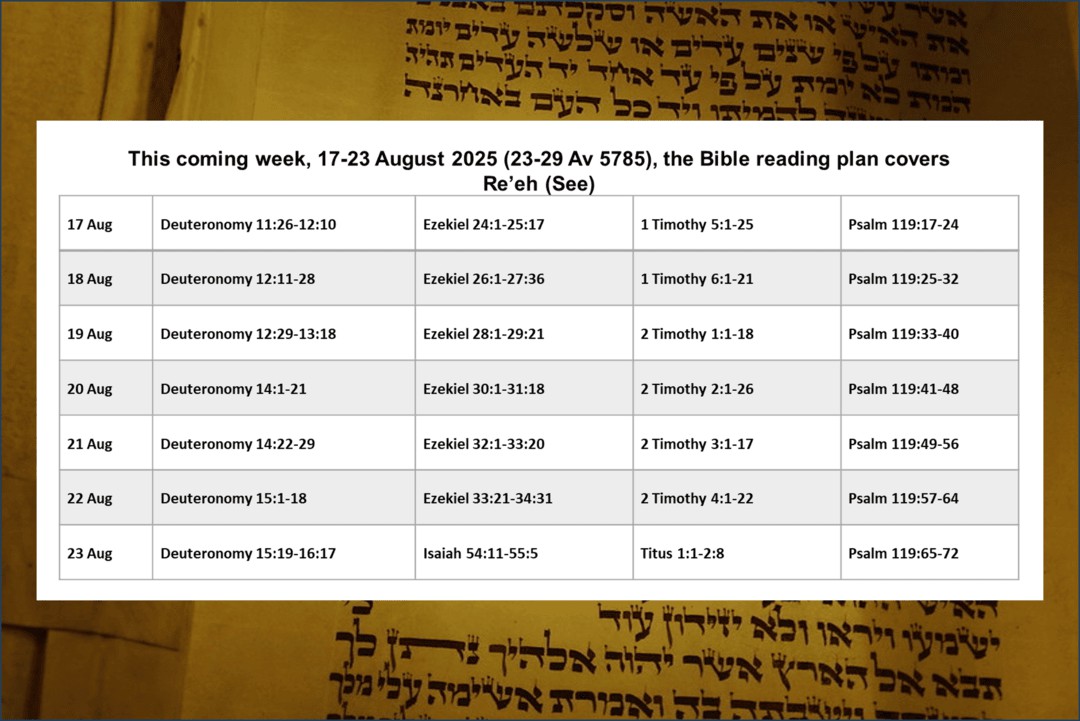Watch
Events
Articles
Market
More
Erev Shabbat Shalom! Let's not forget why we do this, brethren!
For this reason He is the mediator of a new covenant, so that, since a death has taken place for the redemption of the transgressions that were committed under the first covenant, those who have been called may receive the promise of the eternal inheritance.
(Heb 9:15)



And you shall not bring an abominable thing into your house and become devoted to destruction like it. You shall utterly detest and abhor it, for it is devoted to destruction.
Deuteronomy 7:26 ESV
The abominable character of idols is contagious. Knowingly accepting them into your house will make you abominable in God’s eyes also.



Shalom, friends,
We invite you to join us live on YouTube at 3:30pm Central Time on this Sabbath afternoon, 08/16/2025, for scripture study and prayers.
The lesson for the day is titled:
"Chapter 7 - Ivrym (A Concise Commentary on the Book of Hebrews)"
Join us on YouTube at:
Many of our articles can be found in the library page of our website at:
Get our latest updates on our YouTube channel at:



But the LORD your God will give them over to you and throw them into great confusion, until they are destroyed.
Deuteronomy 7:23 ESV
Satan may be the author of confusion, but God will freely use it as an effective tool in His arsenal.
Confusion is a natural outcome of hating God. His commandments are guidelines for healthy, ordered life. If you reject him, you will also reject his commandments and thereby sow confusion and sickness into your own life.



This coming week, 17-23 August 2025 (23-29 Av 5785), the Bible reading plan covers Re’eh (See).
https://thebarkingfox.com/2025/08/15/15086/



